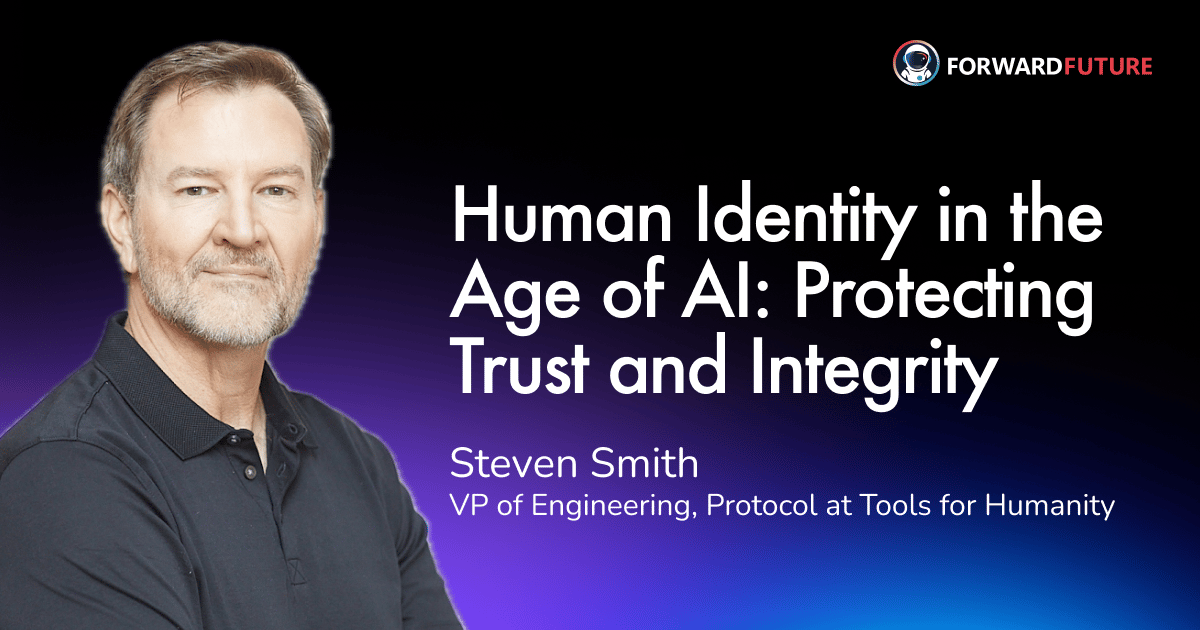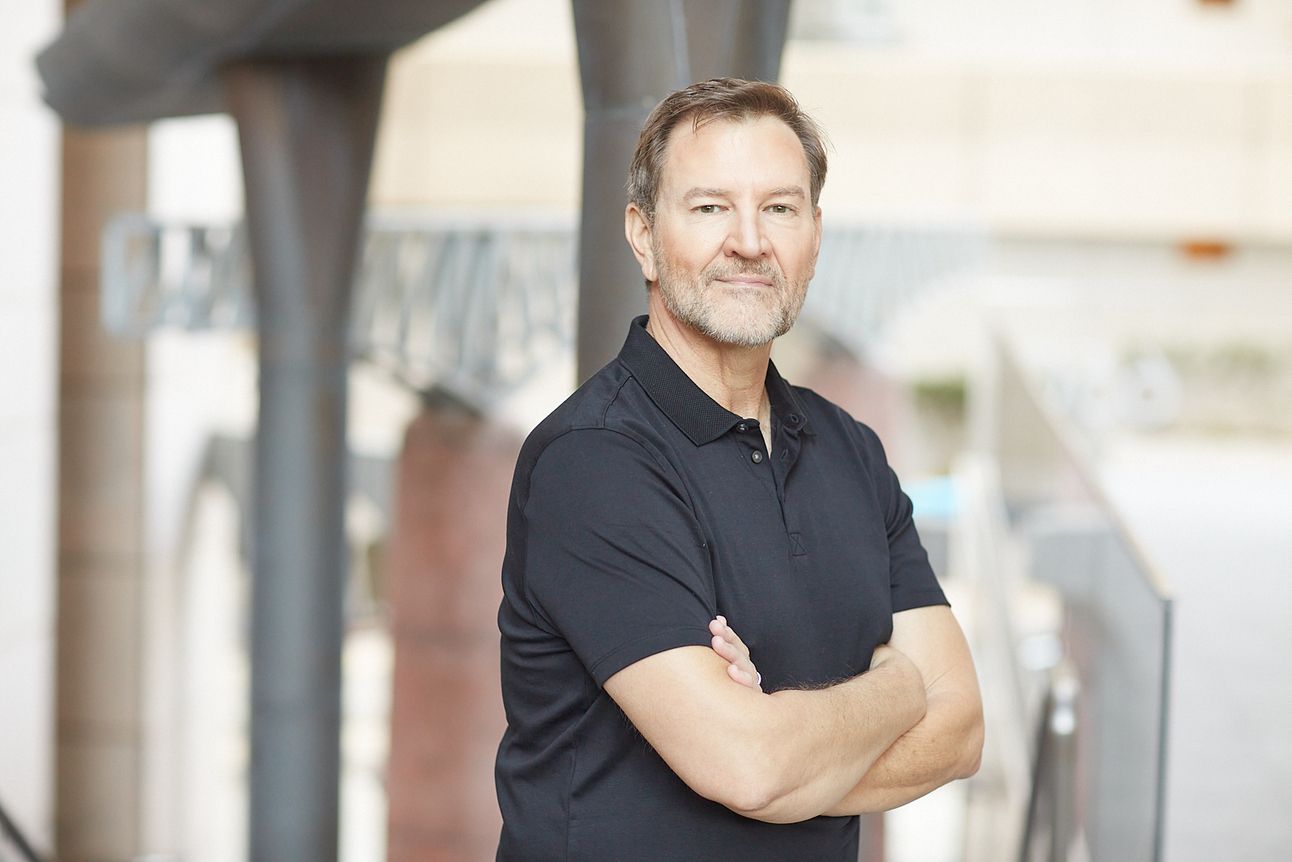
In an age where artificial intelligence is reshaping the world, Tools for Humanity is at the forefront of ensuring technology remains human-centric. In a recent interview, Steven Smith, Head of Protocol at Tools for Humanity, shared insights on the evolving challenges and opportunities in safeguarding human identity in the digital age. Through innovative protocols and a mission-driven approach, the company, which is a core contributor to World Network, seeks to address some of the most pressing issues facing society today.
The Significance of Human Identity
Human identity is foundational to digital interactions, yet it’s increasingly difficult to determine in the AI era. Steven began by painting a stark picture of the challenges involved. “It’s about much more than just preventing identity theft,” he explained. “It’s about protecting the integrity of what it means to be human when AI systems can mimic our voices, images, and even our decisions.”
Steven emphasized the urgency: “AI will reach the levels—and arguably is already there—of superhuman influence already before it ever reaches superhuman intelligence.” This influence isn’t just theoretical—it has real-world consequences in shaping opinions, spreading misinformation, and disrupting trust.
Steven’s passion for this field is deeply personal, tracing back to his career in decentralized technologies like blockchain. “The realization that billions lack basic access to identity and financial systems was a pivotal moment for me,” he reflected. “I saw the potential for technology to bridge these gaps but also the dangers if it isn’t developed ethically.”
2025: A Pivotal Year for Proof of Human
As AI capabilities grow exponentially, 2025 marks a critical juncture for proof of human solutions. With the rise of deepfakes and generative AI, the challenge is no longer hypothetical but an immediate threat to trust in digital interactions. “Deepfakes have made it alarmingly easy to create realistic impersonations,” Steven warned. “The question isn’t if they’ll disrupt trust in digital interactions but how soon—and how severely.”
The public sentiment echoes this concern. “Roughly 70% of people question the content they're consuming: Is it actually real, unbiased, or a targeted fabrication?” Steven noted, citing recent studies to underline the pervasive doubts that plague digital ecosystems. Without proof of human systems, these doubts will only grow, eroding trust in digital ecosystems.
Tools for Humanity and World Network envision proof of human as more than a technological solution; it’s a cornerstone of a more inclusive and equitable digital ecosystem. “We’re not interested in your identity—who you are—but just that you’re unique. That’s at the heart of proof of human technology,” Steven explained. These protocols ensure that everyone—regardless of geography or socio-economic status—can participate in digital systems with confidence. Real-world applications include fair distribution of resources in decentralized systems, secure online voting, and combatting misinformation campaigns driven by AI bots.
Opportunities and Threats in the AI Era
Steven articulated a dual narrative for AI. On one hand, it holds immense promise for productivity, innovation, and accessibility. “AI has the opportunity to boost productivity, remove menial tasks, and make life more efficient—but only if we guide it responsibly,” he stated.
On the other hand, the risks are just as significant. From the spread of misinformation to the manipulation of public opinion, the dangers posed by AI require immediate attention. “The sophistication of these technologies is escalating,” Steven noted. “Without robust systems, we risk a digital ecosystem where you can’t trust who—or what—you’re engaging with.”
Inclusive and Ethical Design
Inclusivity remains a core tenet of Tools for Humanity’s mission. Steven highlighted the challenges of designing protocols that are accessible to underrepresented populations. “It’s not enough to create systems that work; they have to work for everyone. That’s the challenge we take seriously,” he said.
Ethical considerations also guide the organization’s approach to decentralization and governance. “Decentralization promises equity, but it comes with risks, including bias and exploitation,” Steven explained. Tools for Humanity navigates these complexities by embedding transparency and fairness into every protocol it develops.
The Role of Proof of Human in AI Alignment
As AI systems grow more integrated into daily life, aligning them with human values becomes critical. Proof of human solutions provide a framework for ensuring ethical interactions between humans and AI. These systems allow users to verify whether they are engaging with a human or a bot, fostering trust in an increasingly automated world.
Steven shared a vivid example: “Imagine a future where every digital interaction—whether it’s applying for a job, accessing government services, or even chatting online—requires assurance that the other party is genuine. Proof of human systems make this possible.”
He also introduced the concept of a "human web" to describe this vision. “In this globally connected network, proof of human allows us to distinguish the subset of activity that’s authentically human.”
Lessons from the Journey
Reflecting on his tenure at Tools for Humanity, Steven described the most surprising lesson he’s learned: the delicate balance between innovation and practicality. “We’re building systems that need to work seamlessly for millions, yet they must also evolve to address challenges we can’t fully anticipate today.”
His advice for innovators is straightforward but profound: “Stay grounded in your mission. Technology is a means, not an end. Always ask how it serves humanity.”
Conclusion
As AI reshapes our world, the responsibility lies with all of us—innovators, policymakers, and individuals—to champion technologies that uphold human dignity and trust. Engage with initiatives like proof of human protocols, and advocate for ethical AI to ensure a future where humanity remains at the core.
Their vision underscores a vital truth: the future of AI isn’t just about what technology can do but about ensuring it serves the collective good. Together, we can navigate this transformative era, prioritizing trust, integrity, and inclusivity in every innovation.

Steven Smith is the VP of Engineering, Protocol at Tools for Humanity (TFH), a core contributor to World – which aims to provide the world’s largest, most inclusive identity and financial network to be owned by everyone regardless of their country, background or economic status.
In this role, he is focused on pushing the limits of cryptography for privacy, scalability, and usability through the World protocol, an open source, privacy-preserving proof of human verification protocol. Prior to joining TFH, Steven was Head of Engineering and Product Management at the Electric Coin Company, the primary developers of the Zcash protocol. He also spent more than 10 years in engineering roles at Salesforce and Cisco.
🧑🚀 Not a subscriber yet? Join Forward Future for timely news, accessible education, and a thriving community. Click here.

